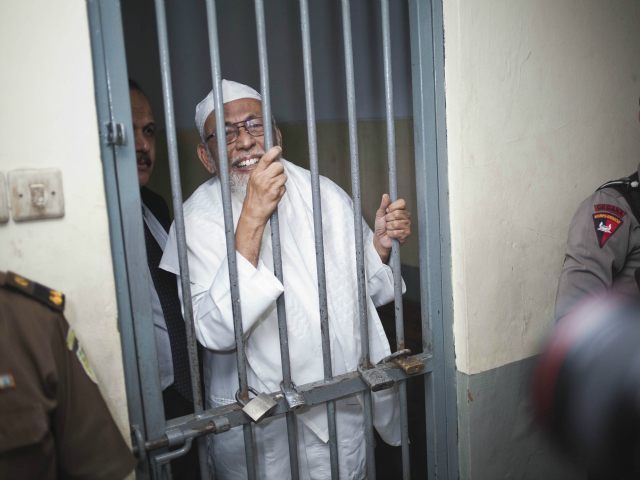This story originally appeared at Reuters.
JAKARTA (Reuters) – Afif was an inmate in a high-security Indonesian jail when he transformed from aspiring radical Islamist to soldier for Islamic State, ready to sacrifice his life for a group based thousands of miles away in the Middle East.
His journey ended with his death last week on a busy intersection in central Jakarta, after the gun and suicide bomb attack he launched with three other militants that brought Islamic State’s brand of violence to Southeast Asia for the first time.
Afif’s graduation from jailbird to jihadi shines a light on a prison system where staff shortages, overcrowding and corruption have allowed extremists to mingle and emerge as determined killers in the name of Islam.
Security officials say Afif, also known as Sunakim, was sentenced to seven years in prison for taking part in a militant training camp in the province of Aceh, where Islam is generally practiced in a stricter form than other parts of Indonesia.
Once behind bars, he refused to follow deradicalization programs, the officials added.
Akbar Hadi, spokesman for the Ministry of Law and Human Rights, declined to comment on whether Afif’s activities were monitored after he was released last August.
Police said he planned the Jakarta siege with the three other attackers, one of whom was also a former convict. Four civilians died in the attack along with the militants.
A report by the Institute for Policy Analysis of Conflict (IPAC) last year said that 26 prisons across Indonesia housed about 270 “convicted terrorists”, but Islamic State supporters accounted for only a small minority of them.
National Police Chief Badrodin Haiti told Reuters that at least five jailed militants were believed to have been in communication with the plotters in the lead-up to the attack.
COURIERS, CELL PHONES
While inside Jakarta’s Cipinang prison, Afif was one of some 20 convicts heavily influenced by fellow convict and firebrand Islamist cleric Aman Abdurrahman, experts said.
From behind bars, Abdurrahman heads an umbrella organization formed last year through an alliance of splinter groups that support Islamic State.
“They shared the same cells, they prayed together, they cooked together,” said Taufik Andrie, Jakarta-based executive director of the Institute for International Peacebuilding.
Abdurrahman regularly spread “takfiri” doctrine, a belief among Sunni militants who justify their violence by branding others as infidels, through his sermons and lectures.
Read the full story at Reuters.

COMMENTS
Please let us know if you're having issues with commenting.